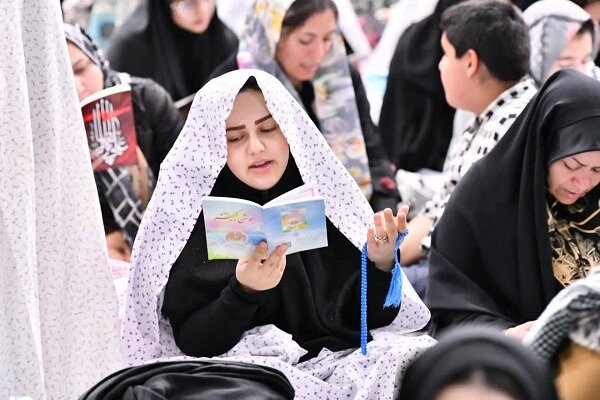Iranians observe Qadr Nights in unison

Ramadan is the ninth month of the Islamic lunar calendar and the month in which Muslims believe the Quran was revealed. Fasting during the month of Ramadan is one of the Five Pillars of Islam.
Qadr Nights are marked on the 19th, 21st, and 23rd day of the holy month of Ramadan.
Communal praying and recitations of the Holy Quran are held on the occasion which is the night with the most virtues before God.
The Qadr Night or Laylat al-Qadr, variously rendered in English as the Night of Decree, Night of Power, and Night of Destiny.
Qadr Night is considered the Islamic festival that commemorates the night on which God first revealed the Qurʾān to the Prophet
Muhammad through the angel Gabriel (Jibrīl).
According to Islamic tradition, the Qurʾān was first revealed to Muhammad after a period of habitual meditation in seclusion. During one of his retreats, on Laylat al-Qadr, the angel Gabriel appeared to him and commanded him: “Iqraʾ!” (“Recite!”).
Aside from the celebration of the Qurʾān’s revelation, the annual observance of Laylat al-Qadr holds additional significance as a night in which angels descend to earth with a myriad of tasks, leading to a night of peace, blessings, and divine guidance (qadar) until the dawn. It is thus commemorated with solemnity, devotion, and prayer, and some observers spend the festival in a mosque in retreat (iʿtikāf).
According to the Quran, the Night of Decree is better than a thousand months put together. Some worshipers will retreat into prayers during these last ten days. These are called days of i-tikaf or retreat and it ends with the festival Id-i Fitr.
All mosques, as well as the holy shrines, across Iran, host the people who want to take part in I-tikaf. They are provided with pre-fast breakfast and Iftar. Many people stay in mosques for three days to perform their religious rituals.

The 19th and 21st of Ramadan, the days of the assassination and martyrdom of Imam Ali – the first Shia Imam – are mourned by Iranians throughout the country. Over these nights, many religious groups start their memorial ceremonies to pay their respects to Imam Ali and mourn his brutal assassination.
People stay up all night reciting special prayers and at times will hold the Quran on their heads while praying.
Religious rituals take place all over the country which makes Ramadan in Iran more unique and memorable. Thousands of Black-clad chest-beating local participants swarm the cities of Iran during the 21st of Ramadan, while religious street theaters, free food givers, and traditional Persian drinks (lemonade-like) on tables decorate the streets of every city.
Reported by Tohid Mahmoudpour
source: en.mehrnews.com





